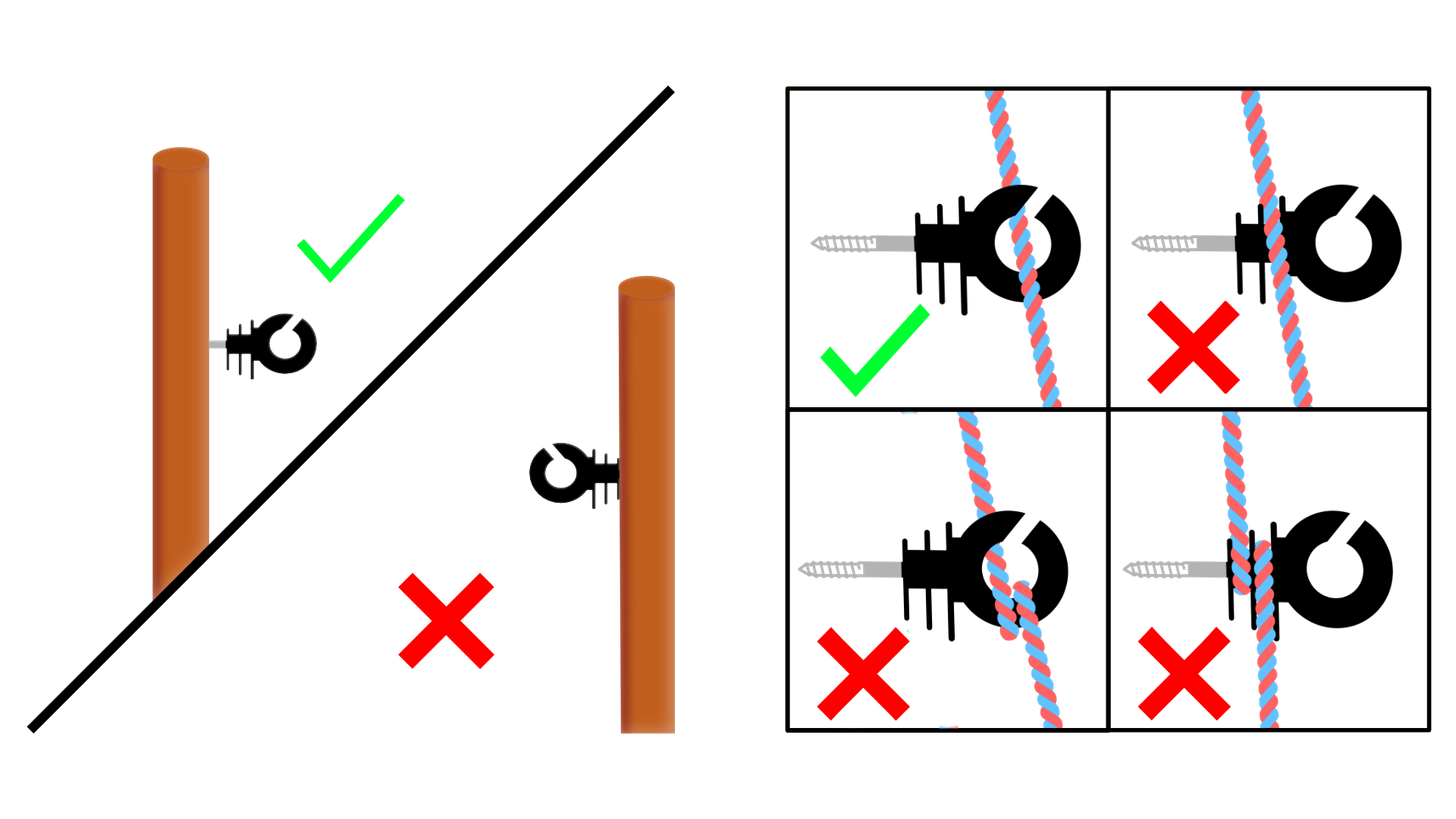
The most effective way to protect animals and land is with electric fence systems, but even among electric fence owners, some are unsure of what keeps the system working smoothly. Let's clarify: insulators play a key role in ensuring the safe and efficient operation of the system. In this article, we will show you why these small but crucial components are indispensable.
Although the operation of electric fence systems may seem simple, there are many components that contribute to the overall efficiency of the protection. For the electric circuit to function without interruption, the insulator is essential. It ensures that the wires do not come into contact with other materials such as wood, metal, or even the ground.
The primary function of an insulator is to prevent current leakage.. This means that the proper installation of insulators ensures that the system delivers its full power when animals (or any other object) make contact with it while preventing unnecessary energy loss.
How does the insulator work?
Insulators, made of plastic or porcelain, are designed to prevent current leakage when used correctly. They ensure that there is no direct contact between the fence wire and the environment (such as wooden or metal posts), preventing the current from escaping in the wrong direction.

Proper installation is critical. The insulator should be fully screwed into the threaded part, ensuring that the plastic does not touch the wooden post, which could reduce the system's effectiveness. If this is not done correctly, the current may escape, and the fence will not function properly.
What types of insulators are available?
There are different types of insulators for electric fence systems, depending on the environment in which they will be used.
1. Simple insulators: These are the most common types, which can be screwed onto wooden or metal posts. They are a great choice for a basic fence installation.
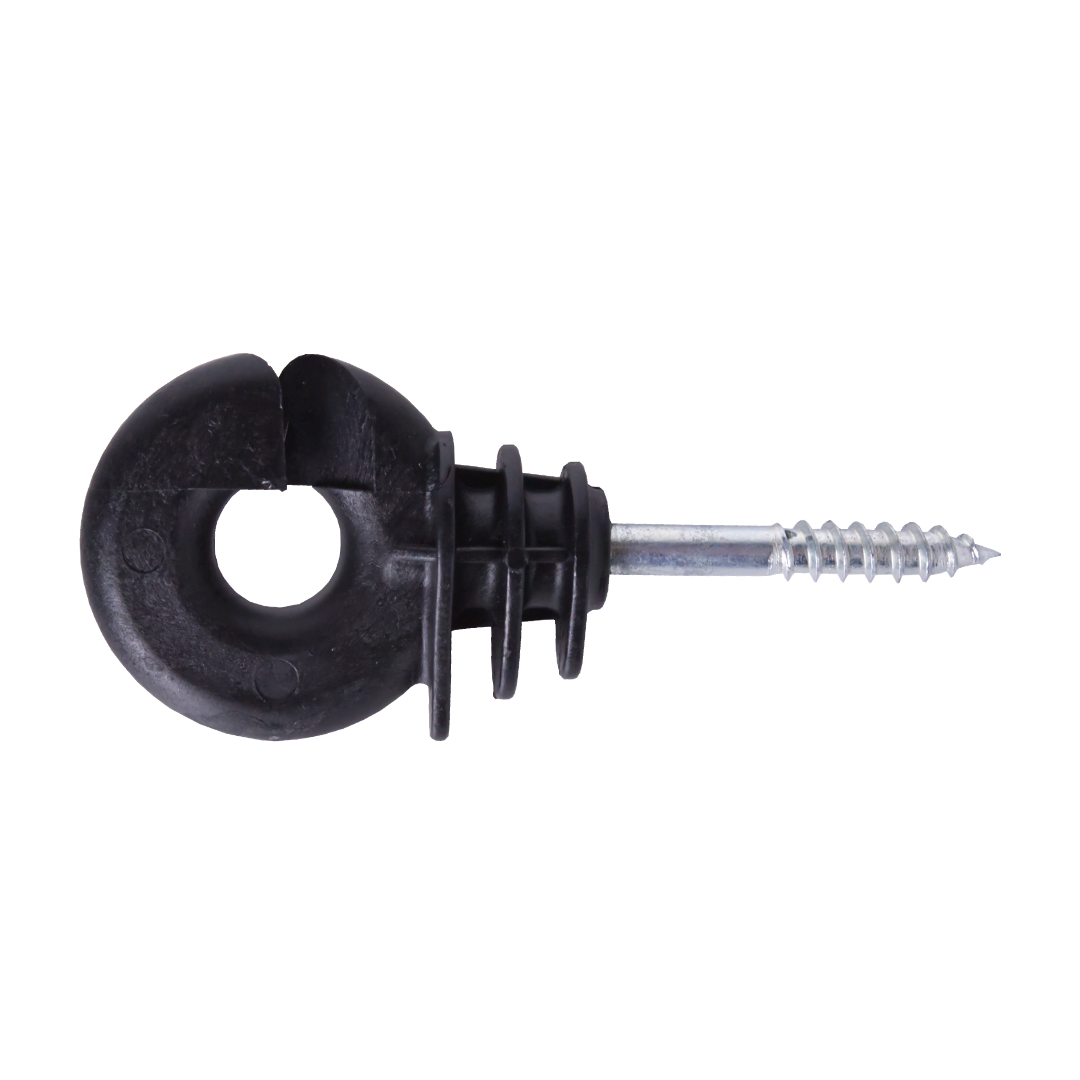
2. Corner insulators: These insulators are specifically designed for the corners of fences to ensure the continuity of the circuit even in sharp turns.
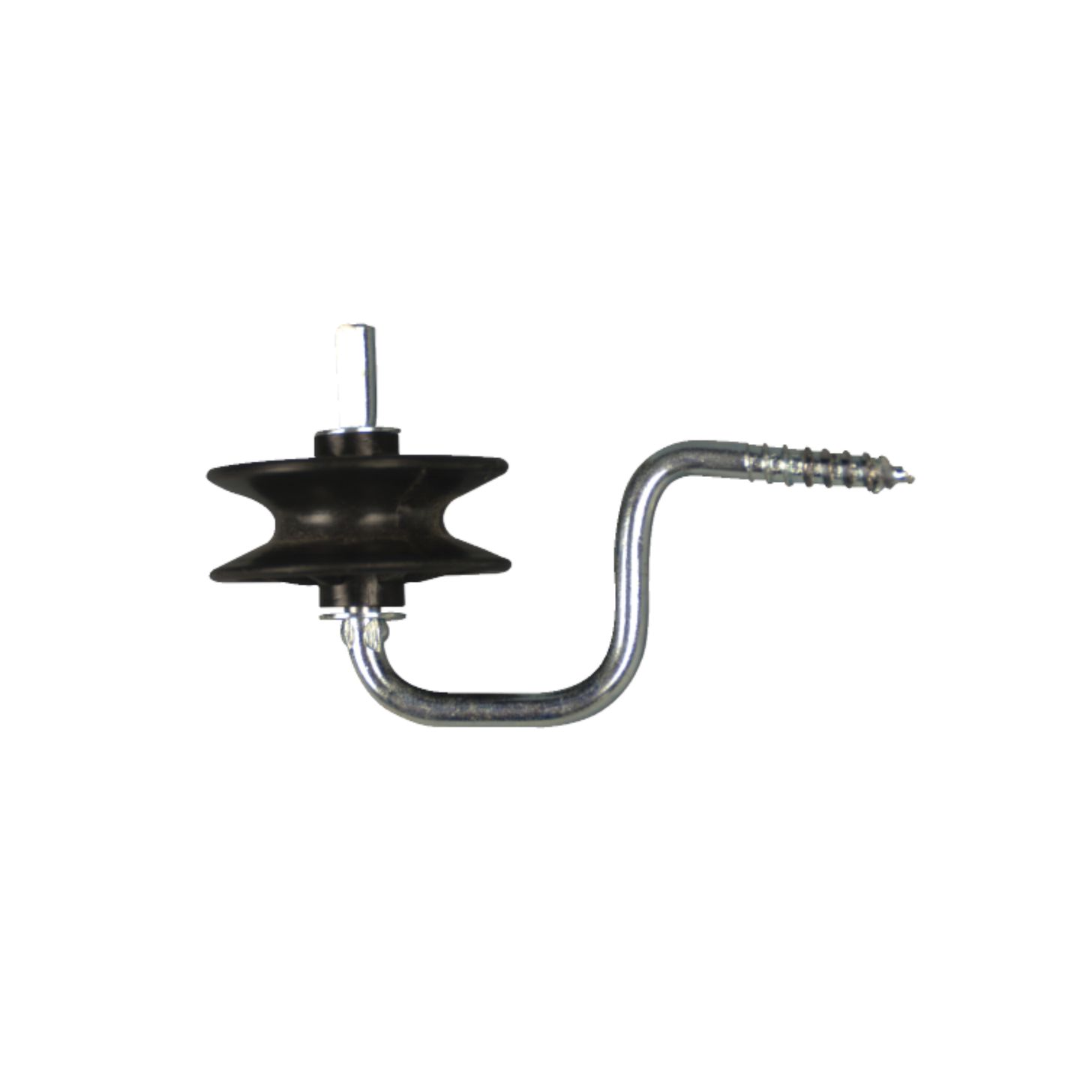
3. Double/triple insulators for gates: Insulators around gates are especially important as they ensure continuous protection even when the gate is open.
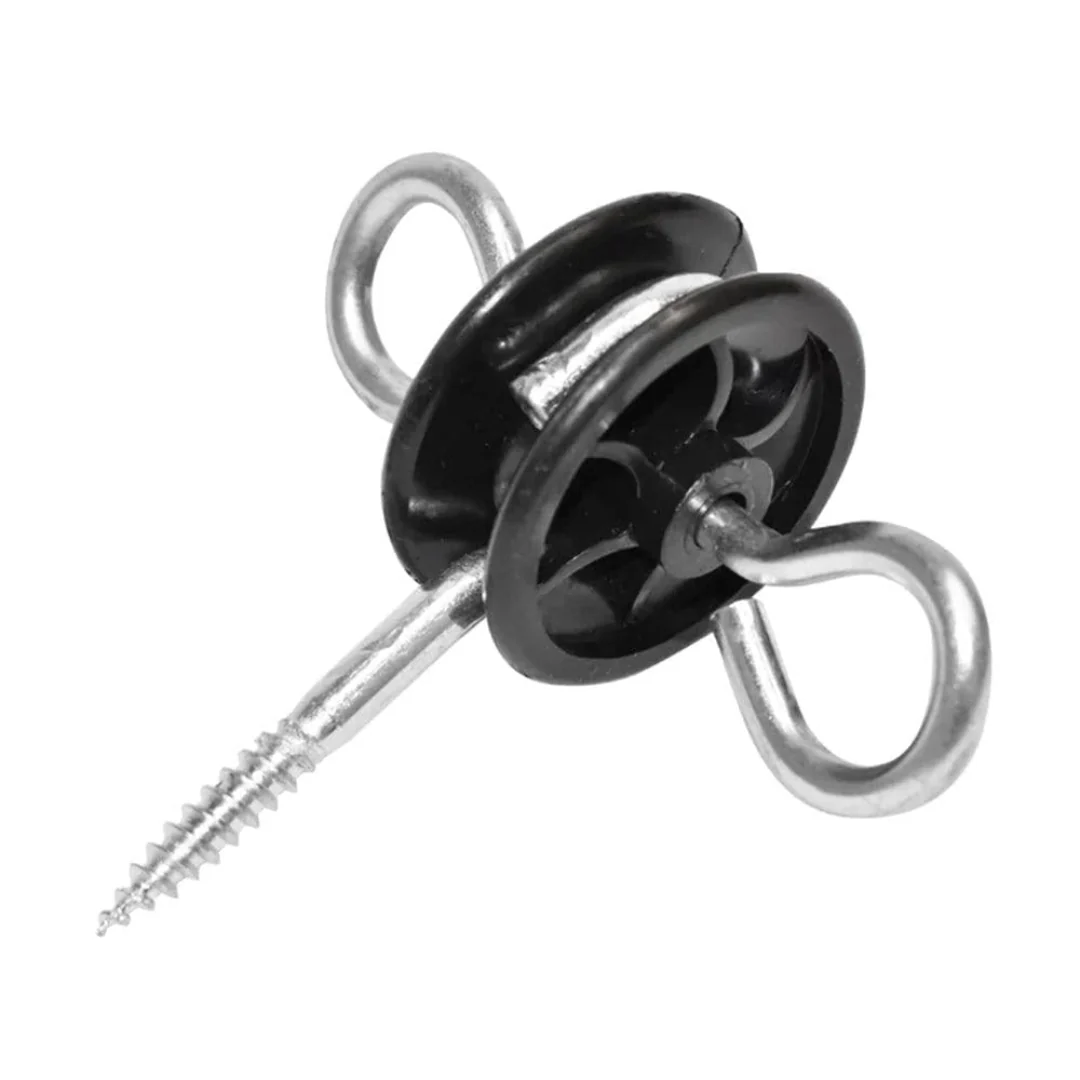
4. Industrial system insulators: These are the most durable types, used in large farms or industrial settings. They can be used with different wire thicknesses, such as 1.6 mm, 2.5 mm, or 3 mm.
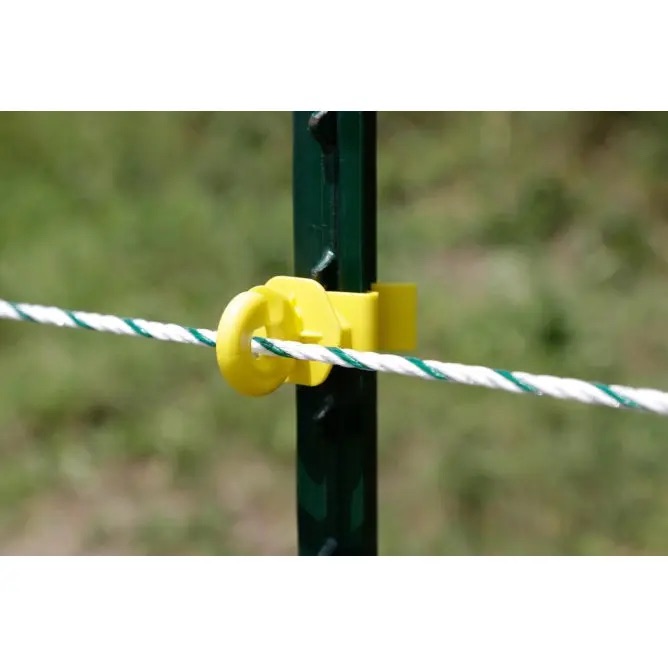
5. Specialized insulators: For example, mesh insulators, which are ideal for areas outside the fence, and spacer insulators that prevent direct contact between the wire and the post.
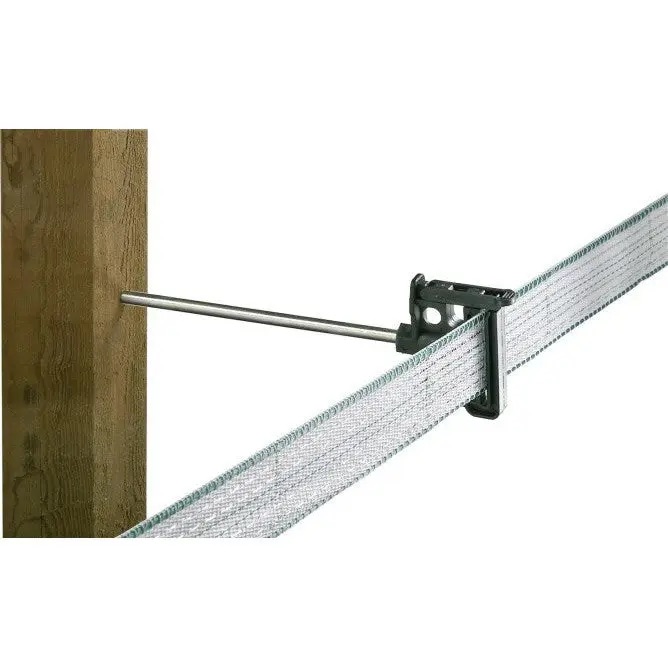
6. Insulators for metal posts: These are designed for metal posts and ensure insulation even for posts up to 16 mm in thickness.
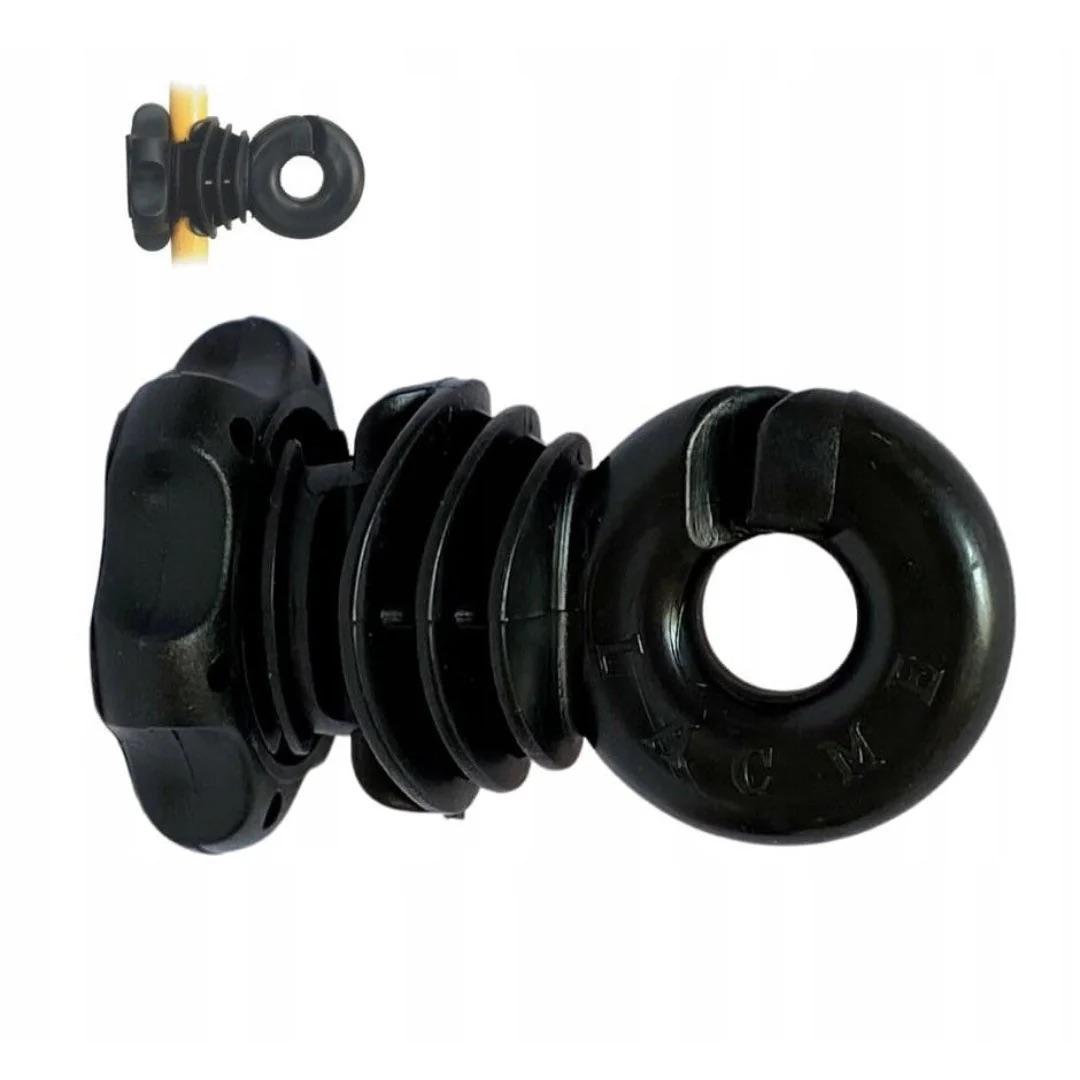
Electric fence insulators are, therefore, key players in maintaining a secure and effective fence. Choosing the correct type and ensuring precise installation guarantees that the system will not only last long but will continue to perform at a high level.
If you haven't checked the condition of your insulators yet, now is the time to do so - successful protection depends on a properly installed insulator!